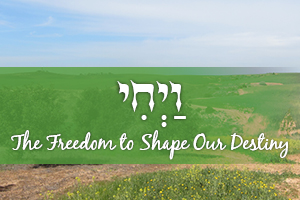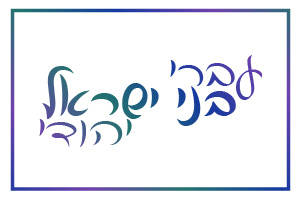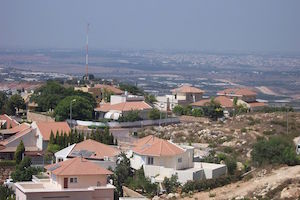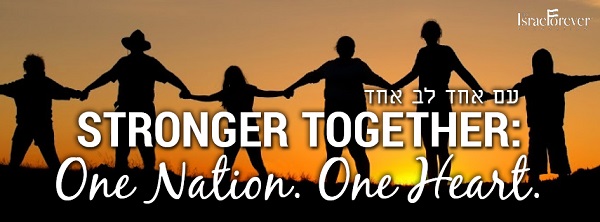Two Qualities of a True Leader
By Natalie Leichtman
Adapted from Ulpan Or
Although united as a nation, the People of Israel consist of twelve tribes. Every one of the tribes has a particular path in life, a specific entity and essence which is to be manifested in the material world. According to the Midrash, even when the Red Sea was parted, it was split into twelve paths, providing a separate path for each tribe, although bringing them all forward to the same destination. We should recognize and respect these differences, but see them as a source of blessing and contribution, not division and competition.
The blessing of these roles goes back to the Torah itself, when Yaakov blesses his children, the twelve tribes, at the end of his life. As the verse tells us at the conclusion of the blessings:
כָּל-אֵלֶּה שִׁבְטֵי יִשְׂרָאֵל, שְׁנֵים עָשָׂר; וְזֹאת אֲשֶׁר-דִּבֶּר לָהֶם אֲבִיהֶם, וַיְבָרֶךְ אוֹתָם--אִישׁ אֲשֶׁר כְּבִרְכָתוֹ, בֵּרַךְ אֹתָם
All these are the twelve tribes of Israel... every one according to his blessing he blessed them. (Gen. 49:28)
These blessings have much to teach us. Each of the twelve sons representing the twelve tribes receives a unique blessing, which reflects a unique path in life.
Based on Yaakov’s blessings, these twelve paths could be perceived as follows:
- Reuven – The Firstborn
- Shim'on – The Aggressor
- Levi – The Priest
- Yehudah – The Leader
- Dan – The Judge
- Naphtali – The Free Spirit
- Gad – The Warrior
- Asher – The Prosperous One
- Issachar – The Scholar
- Zebulun – The Merchant
- Joseph – The Sufferer
- Menashe – Reconnection
- Ephraim – Transformation
- Binyamin – The Ravenous Consumer
There is a lot to be said about each and every path, but let us focus on the one given to Yehudah - that of leadership.
Yehudah comes from the Hebrew verb להודות. This verb has two meanings: to acknowledge, admit, or confess, and also to thank or express appreciation. Likewise, there are two noun forms - תודה, the Hebrew word for “thank you”, and הודאה, an admission or confession.
We actually use both meanings of this verb simultaneously when we say מודה אני - Modeh Ani in the morning; it is equally possible to translate the prayer both as “I recognize that You graciously returned my soul...” and “I thank You for graciously returning my soul…” We, in the same moment. are both thanking G-d for returning our soul to our body, granting us another day of life, and also acknowledging that it is indeed G-d Who has this ultimate power.
(It is also interesting to note, as an aside, that this is an irregular verb form; another verb that also uses this construction is להורות, to instruct. There are also two nouns connected to this verb, though they appear much more closely related: תורה, the Torah, and הוראה, instruction.)
These two concepts, acknowledgement and gratitude, have been part of Yehudah since the very beginning, his birth and naming:
וַתַּ֨הַר ע֜וֹד וַתֵּ֣לֶד בֵּ֗ן וַתֹּ֙אמֶר֙ הַפַּ֙עַם֙ אוֹדֶ֣ה אֶת־ה עַל־כֵּ֛ן קָרְאָ֥ה שְׁמ֖וֹ יְהוּדָ֑ה
She conceived again and bore a son, and declared, “This time I will praise/thank the LORD.” Therefore she named him Judah. (Gen. 29:35)
It is brought down that Leah, at that moment, was the first one to openly thank G-d. But why should she have specifically thanked Him at the birth of not her first, but her fourth son? Because all four of Yaakov’s wives knew that he was destined to be the father of twelve tribes. Leah was acknowledging that she got more than what was her “fair share” of those 12 and thanking G-d for the blessing of this (extra) son.
Thus, Yehudah combines two essential qualities:
- הודאה - Be able to openly acknowledge admit/confess to wrongdoing or unjust behavior.
- תודה - Be able to express gratitude for all which is received in this world.
These are the qualities of a true leader, and Yehudah is indeed a leader of the People of Israel. By showing these qualities throughout his life, he was able to receive the blessing and destiny of leadership from his father. Yehudah's descendants would become the kings of Israel, beginning with King David and concluding with Mashiach.
We see that Yehudah also represents the path of selflessness – the most vital ingredient in true leadership. At the cost of his own comfort, anonymity, or personal pride, Yehudah, the true leader, fought for truth and justice, whether or not he ended up on the “wrong” side in the process.
The name of the People of Israel eventually became Yehudim - יהודים, because of the same exact qualities. It is not a coincidence that we are named for our leader Yehudah, and the Kingdom of Judea. It is our mission as a people to acknowledge and appreciate all the different paths we follow, and be grateful for them. We must lead, be willing to fight for the truth and against injustice, even if or when it makes us a little uncomfortable.
Recommended for you:
About the Author









